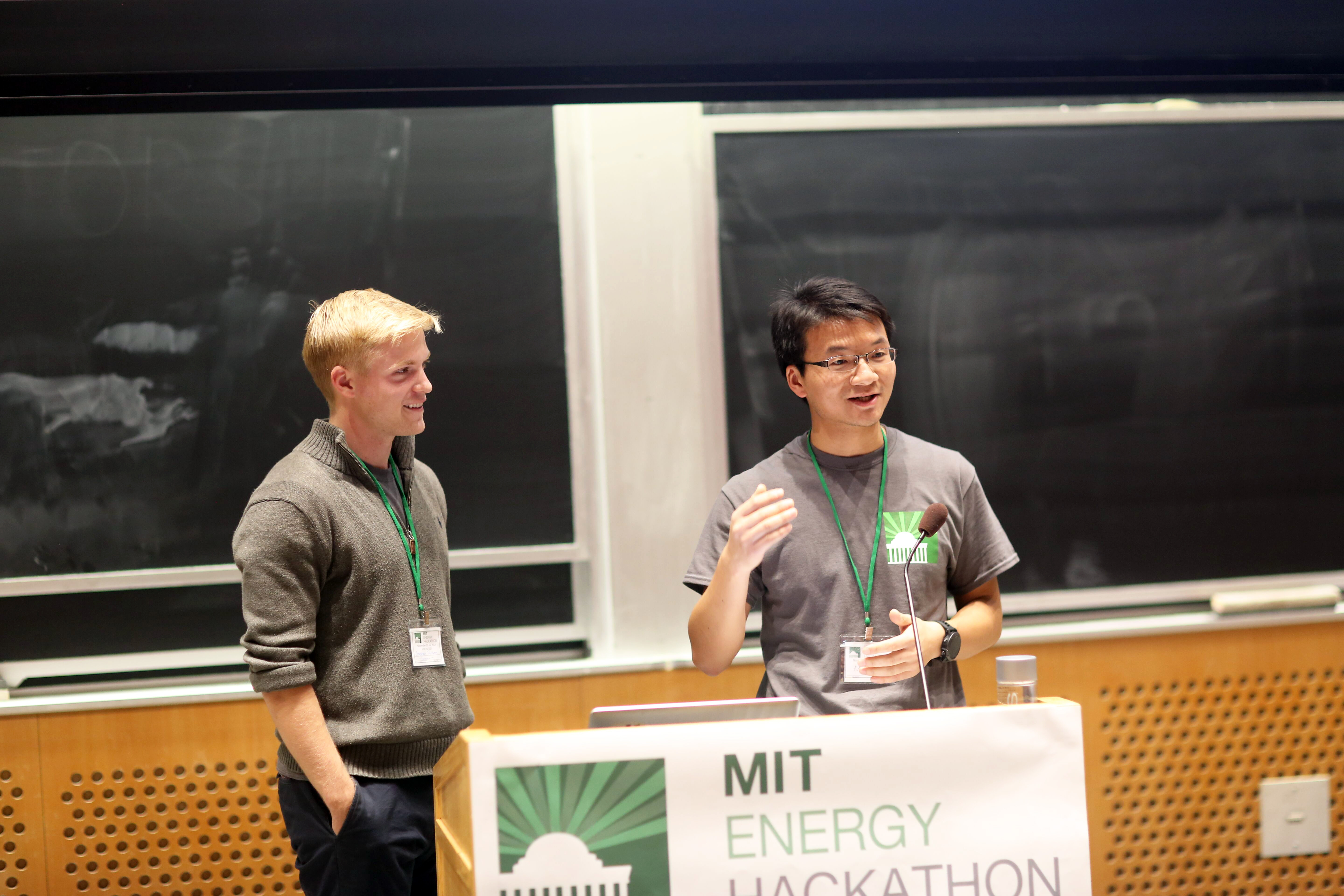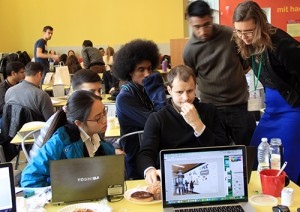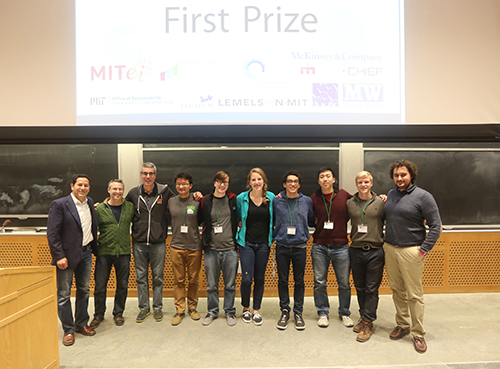Energy Hackathon: Meeting Eight Challenges
-
-
slice.mit.edu
Filed Under
Recommended

Determining the energy use of 400 buildings and coming up with energy efficiency proposals or finding a reason for underperforming oil wells based on limited data points – those were just two of the eight challenges presented to the nearly 300 participants at last weekend’s Energy Hackathon. The challenges were presented by real companies including Schlumberger, OPower, McKinsey, and First Fuel, and addressed real-world issues around enabling energy access, reducing energy waste, and improving energy efficiency. Solutions to the challenges required a mix of technical, business, hardware, and software experience, so teams included a variety of expertise. They also came from varied backgrounds, including many MIT students and alums as well as students from other nearby universities and even local professionals.
 After being presented with the challenges on Friday evening, the 19 teams spent the whole weekend at MIT in lounges, dining halls, and meeting rooms hacking their way to a resolution. On Sunday afternoon, the hackers had five minutes to present their solution to the eight companies and several independent judges. A winner was chosen based on a clear and complete presentation that demonstrated a technically sound understanding of the issue—and one that could be feasibly implemented.
After being presented with the challenges on Friday evening, the 19 teams spent the whole weekend at MIT in lounges, dining halls, and meeting rooms hacking their way to a resolution. On Sunday afternoon, the hackers had five minutes to present their solution to the eight companies and several independent judges. A winner was chosen based on a clear and complete presentation that demonstrated a technically sound understanding of the issue—and one that could be feasibly implemented.
“We’ve been planning the competition since last September as a way of creating a platform to bridge the gap between large companies and talented individuals,” says PhD candidate and Energy Hackathon co-director Kai Xiang. The mission, says Xiang, is to create a platform for energy companies and individuals, students or professionals, to meet to solve energy challenges together. The companies posed real issues, getting insight into real solutions, and the individuals that participated were able to get real-world experience at solving energy problems.
"It was a good experience to work with students with different backgrounds to solve the challenging problems in the energy sector," says PhD candidate Hang Chen, member of the second place team, Buildingram. "We were given a building's address and had to come up with all the energy data. We came up a very innovative way to collect the information from social networks. It was so amazing to see the regular patterns of usage of the building by using statistical analysis."
The first place team was FourUndergrads and they received a cash prize of $3,000. Second, third, and fourth place teams also received cash prizes. The team offered a solution to the challenge posed by Loci Controls, which revolved around optimizing landfill gas utilization.








